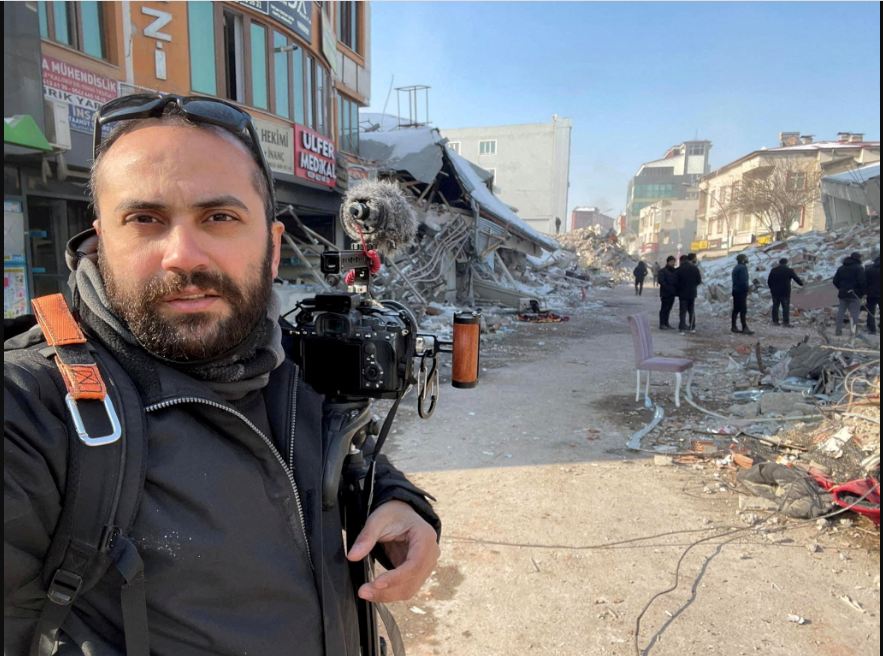PODCAST: Rise of Barelvi Extremism in India and Pakistan
Dammam – A Twitter space on Saturday titled Rise of Barelvi Extremism in India and Pakistan’ was held by Milli Chronicle Media England, against the background of beheading of the Indian tailor Kanhaiya Lal Teli on the charges of supporting the alleged ‘blasphemer’, former BJP spokesperson Nupur Sharma.
The purpose of the space was to dissect the evolution of Barelvi extremism, that has recently started to get noticed in the Indian counter-terrorism circles.
Investigations revealed that the two assailants Riyaz Attari and Mohammed Ghouse in the past showed their allegiance to the Pakistani Barelvi militant group Dawat-e-Islami.
The panel comprising of counterterrorism experts discussed about the radicalization problem and how it is being imported into India.
Panelists were: Executive Director of Islamic Theology of Counter-Terrorism (ITCT) London Mr. Noor Dahri, Head Consultant of Midstone Center for International Affairs (MCIA) Mr. Faran Jaffery, PhD candidate in Digital Counter-Extremism from King’s College London Mr. Jassem Tamim, Director of Association of British Muslims (ABM) Mr. Mohammed Abbasi, and Co-Chairman of Universal Sufi Council Peer Mudassir Shah, while Director of Milli Chronicle Mr. Zahack Tanvir hosted the space.
Dahri said, “Sufism is an ideology, and it’s a non-political ideology around the world. Barelvi Sunni Tehreek started in 1990s as an armed militant group. Some of them were created by Pakistan for the conflict in Kashmir”.
He explained that, Barelvis have always weaponized the blasphemy law, and said that, Barelvi extremists have always attacked the government and civilians, and their motive is to create trouble in the name of blasphemy.
“Most of the victims of Barelvi extremism are Muslims themselves. After the creation of Pakistan, the communal hatred later converted to sectarian hatred”, he added.
“Totally 89 people have been killed since 1948 till 2021. 70 people killed only in Islamabad. Among them most of them were Sunni Muslims, and only one Hindu was killed under blasphemy”, Dahri said.
Jaffery said, “Unemployed youth in Pakistan, and who don’t have a job, take our rallies every now and then. Most of the people in rallies are from Madrasas, who are not skilled and unemployed”.
He blamed the Islamist clergymen who don’t want people to explore religion on their own.
He also said that what Nupur Sharma said has become irrelevant at this point of time.
Endorsing Dahri’s point, Jaffery also said, “It’s very rare to hear if minority was targeted under blasphemy law. A Deobandi files a case against Barelvi and a Barelvi does the vice-versa”.
He added, “Since ideology doesn’t recognize borders, the extremism is flowing from Pakistan to India”.
Jaffery said that Pakistan military in 2011, ranged the alarm bell against Barelvi extremism, to secure the military ranks from getting radicalized.
UK-based Tamim who originally belongs to Morocco, started his talk by admitting what Muslims in India did with the Hindus when they had an upper hand.
Tamim said, “When Muslims had an upper hand in India, they committed atrocities. Now Hindus have the upper hand. However, now Muslims and Hindus in India have to show maturity. Otherwise, India with a civil-war outlook is not a powerful India”.
However, he called all the Muslim sects to stand together in deradicalization, instead of washing-off hands against each-other.
He gave the example of 911, which was carried out by a specific sect, and then everyone started washing-off hands from that sect, which Tamim believes was the big mistake. He said, “It was a collective responsibility because every Muslim share same texts. No one is safe, no one is immune”.
In the end he gave a message to Hindus, “I remind my Hindu brothers, it is your time to prove that you are better than the ones who prosecuted you in the past”.
Peer Sahab said, “God has taken care of the honor of the Prophet and no one can dishonor him”, he said while talking about outrage over Nupur Sharma’s statements.
He said, “Traditionally Barelvis and Sufis believe in Islamic mysticism. But today there’s whole big difference between them. Sufis follow mysticism, while Barelvis are led by politically motivated Mullahs”.
“Sunni Sufis didn’t have political confidence from the Pakistanis. So, the Barelvi Sunnis led by clerics were politically motivated to take part in politics”, he added.
Later, an attendee named Mr. Muslim requested the mic, and added some incredible points.
Muslim said, “Salafi or Ahlul-Hadith are most apolitical people”. He said mere blaming the Salafis for the terrorism is the not the solution.
“Oliver Haneef wrote a book called Wahabi Myth. So merely blaming Wahabi-Wahabi doesn’t work”, he added.
He explained that Tamashuk means to be firm upon textual proofs, whereas Tashadud means extremism to impose them. Islam permits Tamashuk but not Tashadud.
Muslim blamed the Barelvis in India for instigating the Hindus. He said, “Who started raising flags? When you show your supremacy waving green flags during Eid Milad, and blocking roads, then others will be reactionary too”.
He also held News debate equally responsible. He said, “Let the government take it through proper means. What’s need to talk about Gyanvapi”.
Eventually he held Islamists responsible for mocking Hindu deities which led to the insensitive remarks against Prophet Mohammed.
Muslim said, “Mocking other deities is against Quran. Did anyone stop it saying others (Hindus) have sensibilities?”
Mr. Paul Salahudin Armstrong from Birmingham, who follows Sufi Naqshbandi order, had also requested the mic.
Armstrong said, “This is concerning to me, because 22 years ago when I came to Islam, this community was balanced and there were normal people, but now they have become different and intolerant”.
Armstrong said that similar incident like that of assassination of Salman Taseer happened during the Ottoman regime, when a body-guard assassinated a minister on the charges of blasphemy.
He opposed the acts of Mumtaz Qadri and Riyaz Attari, and asked the Muslims to be rational rather being dogmatic.
The space lasted for 1 hour and 54 minutes, and more than 7,800 people have tuned-in so far.



